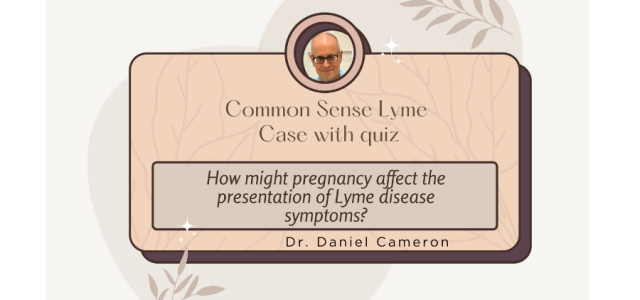Lyme Science Blog
Dr. Daniel Cameron, MD, MPH, is a nationally recognized leader for his expertise in the diagnosis and treatment of Lyme disease and other tick-borne illnesses. His weekly Lyme Disease Science blog features articles covering the latest research, insights and case reviews.
Lyme Science Blog
When Lyme Treatment Fails: Could It Be Babesia?
Babesia is increasingly recognized as a serious and sometimes overlooked tick-borne infection. While many patients and providers are aware of
Lyme Science Blog
Can You Get Lyme Disease Without a Tick Bite?
Can You Get Lyme Disease Without a Tick Bite? Yes, it’s possible to have Lyme disease without ever recalling a
Lyme Science Blog
One Unit of Blood Led to a Babesia Infection
When we think of tick-borne illnesses like Babesia, we often picture outdoor exposure in wooded, high-risk areas. But what happens
Lyme Science Blog
Lyme Disease with Weakness and Hyporeflexia
This case involved a 25-year-old woman who experienced progressive numbness and tingling, beginning in her torso and eventually affecting her
Lyme Science Blog
Can Lyme disease stay hidden during pregnancy and only emerge after childbirth?
A 23-year-old woman from Brooklyn, NY, presented to her primary care physician with bilateral knee swelling and pain three days
Lyme Science Blog
How to Tick-Proof Your Yard?
Creating a tick-proof yard is one of the most effective ways to lower the risk of tick bites and Lyme
Lyme Science Blog
Which Singers Have Battled Lyme Disease?
Lyme disease doesn’t discriminate. It has affected everyday individuals and celebrities alike—including several high-profile singers. These artists have shared their
Favorite Blogs, Lyme Science Blog
Do Ticks Wash Off in the Shower?
How a Shower Can Help Taking a shower after being outdoors is a smart habit, especially during tick season. It
Lyme Science Blog
Back Pain Mystery Solved… It Was Lyme Disease
Back pain is one of the most common complaints in medicine. For most people, it’s caused by something mechanical—disc degeneration,









